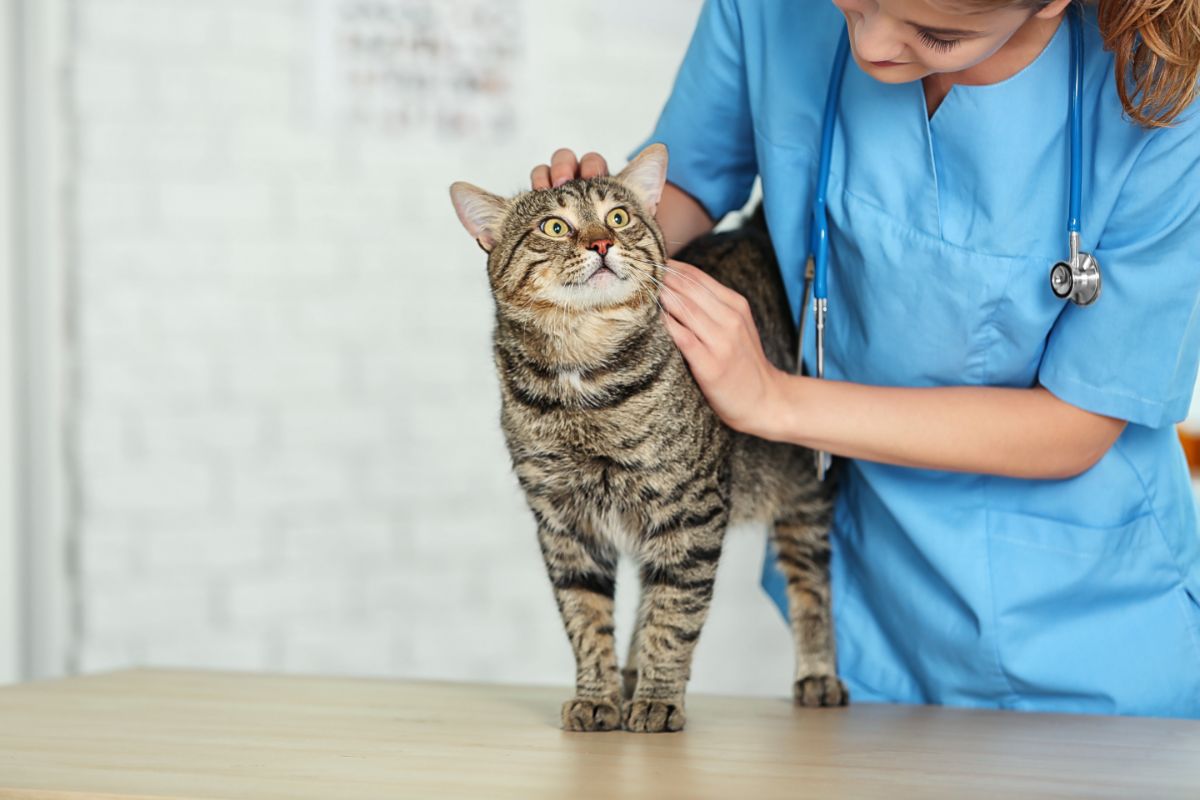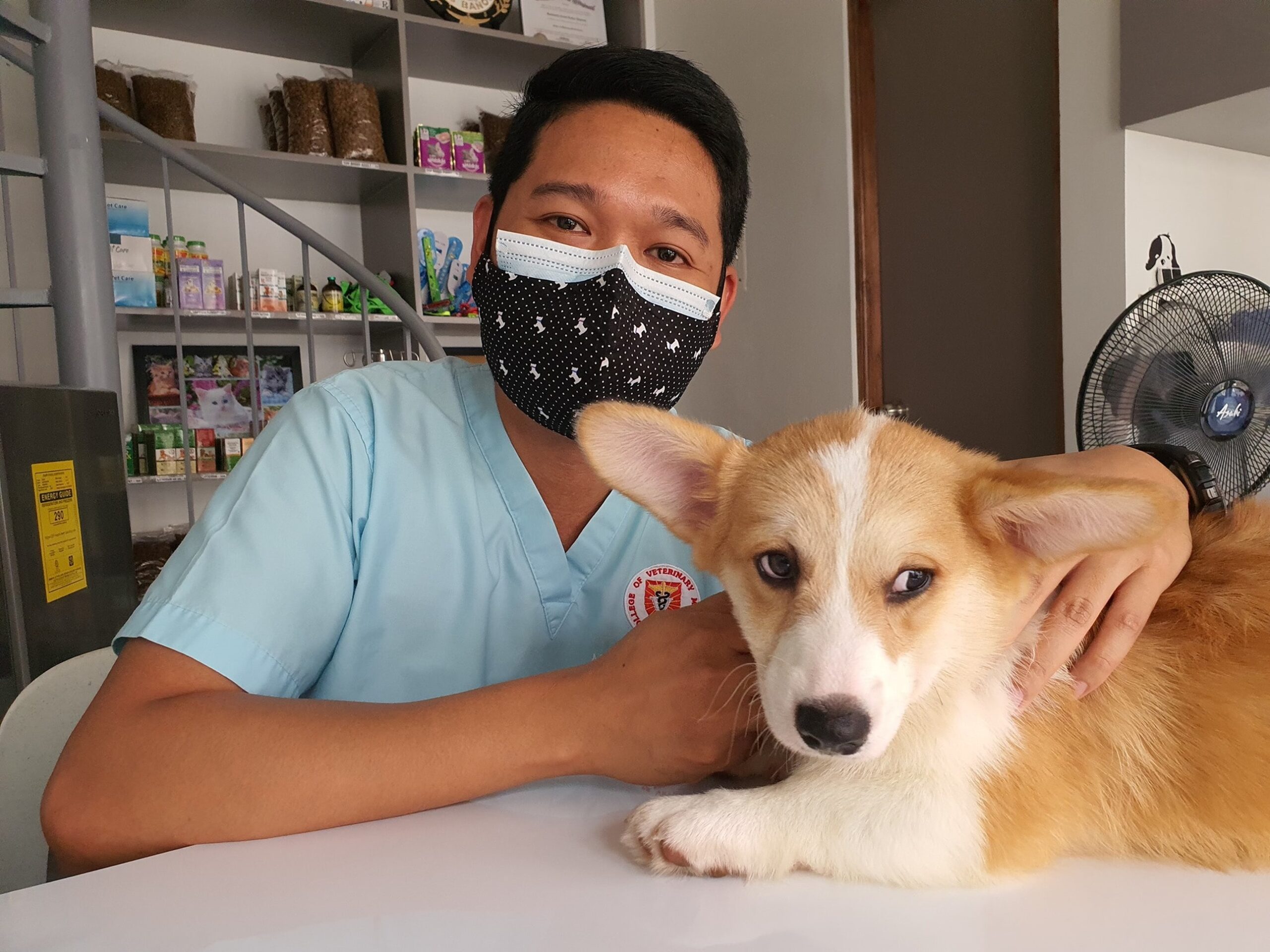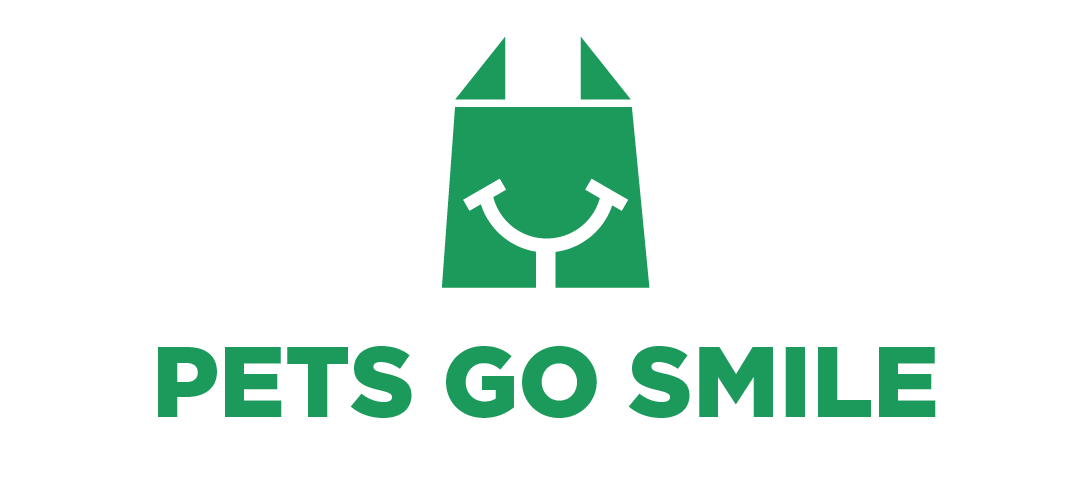As a pet clinic, it’s essential to have the right supplies and equipment. Pet feeders and litter boxes are two of the most important items you should have for your furry patients.
Not only do they make caring for pets easier, but they also help provide them with a safe and comfortable environment.
They can even help reduce messes in your clinic! With so many options available on the market today, choosing the best pet feeder or litter box for your clinic doesn’t have to be difficult.
In this article, we’ll discuss why pet feeders and litter boxes are must-haves for every pet clinic as well as how you can choose the best litter boxes and the perfect ones for your needs.
The Significance of Pet Feeders in Pet Clinics

Ensuring Timely and Controlled Feeding
One of the significant advantages of incorporating pet feeders in pet clinics is the ability to ensure timely and controlled feeding for all the animals in their care.
Pet feeders are equipped with programmable scheduling features that allow clinic staff to establish precise feeding times for each pet.
This eliminates the possibility of pets being fed irregularly or missing meals altogether, ensuring that they receive the necessary nutrition at the right times.
By maintaining a consistent feeding schedule, pet clinics can establish a sense of routine and stability for the animals, contributing to their overall well-being.
Reducing Overfeeding and Underfeeding Risks
Overfeeding and underfeeding are common problems in many cats that can have adverse effects on a pet’s health.
Pet feeders play a crucial role in reducing these risks by accurately measuring and dispensing the right portion sizes.
Many high-quality pet feeders offer precision and accuracy in portion control, enabling pet clinics to tailor the feeding quantities according to each animal’s needs.
This not only prevents overeating and weight gain but also ensures that pets receive sufficient nutrients for their optimal health.
Maintaining Consistency and Routine:
Pets thrive on consistency and routine, and maintaining a stable feeding schedule is essential for their overall well-being.
Pet feeders in pet clinics help create a sense of predictability by providing meals at consistent times throughout the day.
Animals can develop a reliable routine around their feeding schedules, leading to reduced anxiety and improved behavioral patterns.
The automation offered by pet feeders ensures that even in the absence of clinic staff, pets can enjoy regular meals, enhancing their sense of security and comfort in the clinic environment.
Addressing Special Dietary Needs
Every pet has unique dietary requirements, and pet clinics often encounter animals with specific dietary needs due to various health conditions or restrictions.
Pet feeders offer a solution to address these special dietary needs effectively. They provide customizable portion control options that most automatic cat feeders have, allowing clinic staff to adjust the feeding quantities according to each pet’s requirements.
This feature is particularly beneficial when dealing with pets that have specific dietary restrictions or need to follow a strict feeding regime.
By accommodating special dietary needs, pet clinics can ensure that every animal receives appropriate nutrition for their individual health circumstances.
Customizable Portion Control for Different Pets
Pet feeders offer the advantage of customizable portion control, which is crucial when dealing with pets of varying sizes, ages, and breeds.
Clinic staff can adjust the portion sizes to accommodate the specific needs of each pet. For example, smaller pets may require smaller portions to prevent overeating, while larger or more active pets may need larger portions to meet their energy requirements.
With customizable portion control, pet clinics can cater to the diverse nutritional needs of their patients, promoting overall health and well-being.
Scheduled Feeding for Prescription Diets
In pet clinics, there are instances where pets require prescription diets to manage specific health conditions such as obesity, diabetes, or allergies.
Pet feeders with programmable scheduling capabilities can be programmed to dispense meals according to the prescribed feeding regimen.
This ensures that pets receive their specialized diets at specific intervals throughout the day, promoting better management of their health conditions.
Scheduled feeding for prescription diets not only helps maintain consistency but also allows pet clinics to monitor and track the pet’s dietary intake accurately.
By incorporating pet feeders in pet clinics, these facilities can ensure timely and controlled feeding, reduce the risks of overfeeding and underfeeding, maintain consistency and routine, address special dietary needs with customizable portion control, and provide scheduled feeding for pets on prescription diets.
Key Features of High-Quality and Automatic Pet Feeder

Precision and Accuracy in Portion Control
High-quality and best automatic cat feeders excel in providing precise and automatic cat feeders with accurate portion control for pet clinics.
These automatic feeders are equipped with advanced mechanisms that accurately measure and dispense the right amount of dry food for each pet.
The portion control feature allows clinic staff to customize the feeding quantities according to the specific needs of each animal.
By ensuring precise portioning, pet feeders help prevent overfeeding or underfeeding, promoting healthy eating habits and weight management for most cats the pets in the clinic’s care.
Programmable Scheduling and Meal Dispensing
Another key feature of high-quality pet feeders is their programmable scheduling and meal dispensing capabilities.
Pet clinics can easily set up specific feeding times and intervals for each pet, ensuring that meals are dispensed automatically without the need for constant human intervention.
The programmable scheduling feature allows for flexibility in establishing consistent feeding routines, even when clinic staff is busy or not present.
This feature proves particularly beneficial for clinics with a large number of animals or those with limited staff resources, ensuring that all pets receive their meals on time.
Smart and Intuitive Technology
Modern pet feeders incorporate smart and intuitive technology that enhances their functionality and usability.
These feeders often come with user-friendly interfaces, making it easy for clinic staff to program and adjust feeding schedules and portion sizes.
Some feeders even feature built-in sensors and timers that can detect and respond to the pet’s presence, ensuring that food is dispensed only when the pet is near the feeder.
Smart technology in pet feeders also enables connectivity with mobile applications, allowing staff to monitor and control feeding schedules remotely.
The integration of smart and intuitive features in pet feeders enhances the overall user experience and convenience for most pet owners and clinics.
Easy Cleaning and Maintenance
High-quality pet feeders prioritize easy cleaning and maintenance, considering the importance of hygiene in pet clinics.
These feeders are designed with removable and dishwasher-safe components, allowing for quick and hassle-free cleaning.
The materials used in automatic feeders in their construction are often resistant to stains and odors, ensuring that the feeder remains clean and fresh for the pets.
Additionally, some pet feeders feature self-cleaning functions, where the feeding tray or bowl can be automatically washed and sanitized between up to ten meals each.
The emphasis on easy cleaning and maintenance makes these feeders practical and time-efficient for pet clinics.
Durable and Pet-Safe Construction
Pet feeders designed for pet clinics are built to withstand the rigors of daily use by cats and the sometimes energetic nature of animals.
They are constructed with durable materials that can withstand chewing, scratching and accidental bumps. The feeder’s design also takes into consideration the safety of pets, ensuring that there are no sharp edges, small parts, or materials that could be harmful if ingested.
The durable and pet-safe construction of these feeders ensures their longevity and provides a safe feeding solution for pets in the clinic’s care.
High-quality and automatic pet feeders offer precision and accuracy in portion control, programmable scheduling and meal dispensing, smart and intuitive technology, easy cleaning and maintenance, and durable and pet-safe construction.
These key features contribute to the efficiency, convenience, and safety of pet feeding in pet clinics, ultimately enhancing the overall pet care experience and well-being of the animals.
Advantages of Litter Box in Pet Clinics
Promoting Hygiene and Odor Control
Litter boxes play a vital role in promoting hygiene and odor control in pet clinics. These covered litter boxes are designed with features that help contain and control cat waste further, preventing it from spreading throughout the clinic.
The litter material absorbs and masks odors effectively, creating a more pleasant environment for both the pets and the clinic staff.
Minimizing the Spread of Diseases and Infections
In a pet clinic setting, the risk of diseases and infections spreading among animals is a significant concern. Litter boxes help minimize this risk by using litter inside providing a designated and controlled space for pets to eliminate waste.
By confining waste to a specific area, the chances of cross-contamination and the spread of pathogens are significantly reduced.
Regular, self-cleaning litter boxes and proper disposal of waste from litter boxes further contribute to maintaining a hygienic environment that is crucial for preventing the transmission of diseases and infections.
Reducing Unpleasant Odors for a Comfortable Environment
Unpleasant odors can be a common challenge in pet clinics, and litter boxes play a key role in reducing these odors.
The litter material used in the cat’s litter box and other kitty litter boxes is designed to absorb and neutralize odors effectively, creating a more comfortable and inviting environment for both the pets and the clinic staff.
Litter boxes help keep the clinic clean and fresh by reducing smells from pet waste, creating a better experience for everyone.
Monitoring Pet Health
Traditional litter box in pet clinics serve as valuable tools for monitoring the health of the animals.
The clinic staff can obtain crucial information about the health and well-being of pets by analyzing their urine and fecal patterns.
Changes in urine color, consistency, or frequency, as well as abnormalities in fecal appearance, can indicate underlying health issues or potential litter box problems.
Regular monitoring of pet waste in litter boxes enables early detection of health concerns, allowing for timely intervention and treatment, ultimately improving the overall care provided by the clinic.
Detecting Changes in Urine and Fecal Patterns
Litter boxes enable pet clinics to closely monitor the urine and fecal patterns of the animals under their care.
By observing the frequency, quantity, and appearance of urine and feces in the cat’s litter boxes, clinic staff can detect any deviations from normal patterns.
Changes in urine volume, color, or odor, as well as abnormalities in fecal consistency or the presence of blood, can be indicative of various health conditions.
The ability to detect such changes promptly through automatic litter boxes and monitoring allows for timely veterinary attention, leading to early diagnosis and treatment of potential health issues.
Identifying Potential Health Issues Early On
Early detection of health issues is crucial for providing optimal care to pets in a clinic. Litter boxes play a significant role in this regard by providing clinic staff with valuable insights into the health of the animals.
Clin staff can identify potential health issues early on by carefully observing the waste in the cat’s litter boxes, even before the pets show noticeable symptoms.
This early identification allows for prompt veterinary assessment and intervention, increasing the chances of successful treatment and better outcomes for the pets in the clinic’s care.
Litter boxes in pet clinics offer advantages such as promoting hygiene and odor control, minimizing the spread of diseases and infections, reducing unpleasant odors, monitoring pet health, detecting changes in urine and fecal patterns, and identifying potential health issues early on.
These advantages contribute to creating a clean and healthy environment in the clinic while facilitating effective monitoring and care for the pets.
Recommendations for Pet Toy Companies, Pet Food Businesses, Vet Clinics, and Pet Supply Stores

Include Pet Feeders and Litter Boxes in Product Offerings
For pet toy companies, pet food businesses, vet clinics, and pet supply stores, it is highly recommended to include pet feeders and cat litter and boxes in their product offerings.
Businesses can meet the increasing demand for convenient and efficient pet care products by adding automated solutions to their range of products.
Including essential items like pet feeders and litter boxes can improve their reputation as reliable sources of pet supplies, especially for pet clinics.
Adding these items to product offerings also presents an opportunity for businesses to increase their revenue streams and tap into the market of pet owners seeking automated solutions for their pets’ needs.
Educate Pet Owners about the Benefits of Automated Solutions
As pet toy companies, pet and cat food, businesses, vet clinics, and pet supply stores, it is essential to educate pet and cat owners about the benefits of automated solutions such as pet feeders and litter boxes.
Many pet owners may not be aware of the convenience and advantages of these products offer.
Pet owners can make informed decisions about integrating time-saving benefits, precise portion control, reduced risks of overfeeding or underfeeding, improved hygiene, and early health issue detection into their pet care routines if businesses educate them effectively.
This can be done through informative product descriptions, blog posts, social media content, and in-store demonstrations to showcase the value and functionality of these automated solutions.
Collaborate with Pet Clinic Partnerships for Cross-Promotion
Establishing partnerships and collaborations with pet clinics can be a strategic move for pet toy companies, pet food businesses, vet clinics, and pet supply stores.
When businesses collaborate, they can engage in cross-promotion activities that are mutually beneficial.
For example, pet clinics can promote and endorse the automated solutions offered by other businesses to their clients. This can help emphasize the convenience and effectiveness of these products.
In return, businesses can promote the services and expertise of the partnering pet clinics, creating a mutually beneficial relationship.
Cross-promotion can be done through joint marketing campaigns, referral programs, or even hosting educational events together. Such collaborations not only expand the reach of businesses but also enhance the credibility and trustworthiness of their offerings.
Ensure Quality Assurance and Safety Standards
One of the ultimate priorities for pet toy companies, pet food businesses, vet clinics, and pet supply stores should be to ensure quality assurance and safety standards for the pet feeders and litter boxes they offer.
These automated solutions are integral to the well-being of pets, and it is crucial to provide products that are reliable, durable, and safe for use.
Businesses should carefully select manufacturers and suppliers who adhere to rigorous quality control processes and comply with industry safety standards.
Thorough product testing and evaluation should be conducted to ensure that the pet feeders and litter boxes meet the necessary quality and safety requirements.
By prioritizing quality assurance and safety, businesses can build trust among pet owners and establish a reputation for providing reliable and high-quality products.
Takeaways
In conclusion, pet feeders and best litter box are essential products for every pet clinic.
Businesses such as pet toy companies, pet food businesses, vet clinics, and pet supply stores should include these items in their product offerings to meet the increasing demand for convenient and efficient solutions.
Furthermore, educating customers on the benefits of automated solutions can help them make informed decisions about integrating this technology into their care routines.
Finally, collaborations with other businesses or organizations can be beneficial when it comes to cross-promotion activities that emphasize the convenience and effectiveness of these products.
Quality assurance and safety standards must also be met in order to ensure reliability and trustworthiness among customers.
With all these considerations taken into account, businesses will be able to provide reliable services while offering an improved experience for both pets and owners alike.

